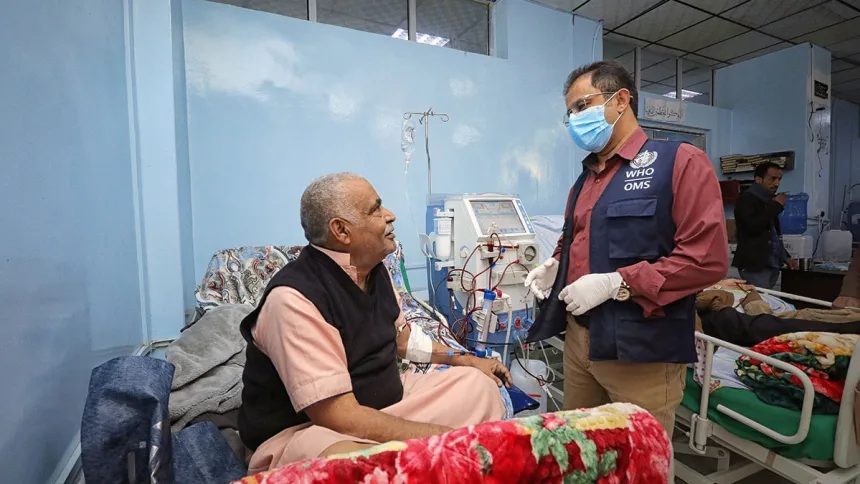Yemen – The World Health Organization (WHO) has signed a €3.4 million agreement with the Government of Germany to sustain lifesaving health and nutrition services in Yemen. The initiative is critical: Yemen is grappling with a protracted, grade 3 emergency – the highest level of WHO health emergency response.
Yemen faces multiple and parallel outbreaks of vaccine-preventable diseases, including circulating vaccine-derived poliovirus type 2 (cVDPV2), acute watery diarrhoea and cholera, measles, diphtheria, malaria and dengue fever. Between the outbreak of cholera in March 2024 and the end of September 2024, Yemen reported 204,000 suspected cases and 710 deaths. Since the beginning of the year, 33,000 suspected measles cases have been reported, with 280 associated deaths.
Food insecurity in Yemen has worsened. Nearly half of all households now struggle to access sufficient food. Recent Integrated Phase Classification (IPC) results indicate alarmingly high malnutrition levels. By the end of 2024, it is projected that over 223 000 pregnant and breastfeeding women and more than 600 000 children will be malnourished. Among these children, nearly 120 000 are expected to suffer from severe acute malnutrition (SAM), a 34% increase on the previous year.
The agreement aims to strengthen health emergency preparedness and response measures, targeting priority hazards and locations. It will strengthen surveillance and rapid response mechanisms, provide essential medicines and medical supplies and support essential lifesaving health services and the deployment of qualified and skilled personnel.
To address the pressing issue of malnutrition, the agreement aims to improve access to integrated nutrition services and ensure the functionality of 96 targeted therapeutic feeding centres (TFCs) dedicated to treating cases of SAM in children and those linked to pediatric wards. Operational support will enable the targeted TFCs to provide essential care for children suffering from SAM with medical complications.
Also Read: Sierra Leone launches Ebola vaccination drive for frontline health workers
Since 2017, the Government of Germany has been a crucial supporter of WHO, providing €25.4 million to address the dire humanitarian crisis in Yemen. Germany’s contributions have enabled WHO to improve access to priority health services, strengthen Minimum Service Package (MSP) support to health facilities, respond rapidly to epidemics, enhance disease surveillance and preparedness and address severe acute malnutrition in children under 5.




















